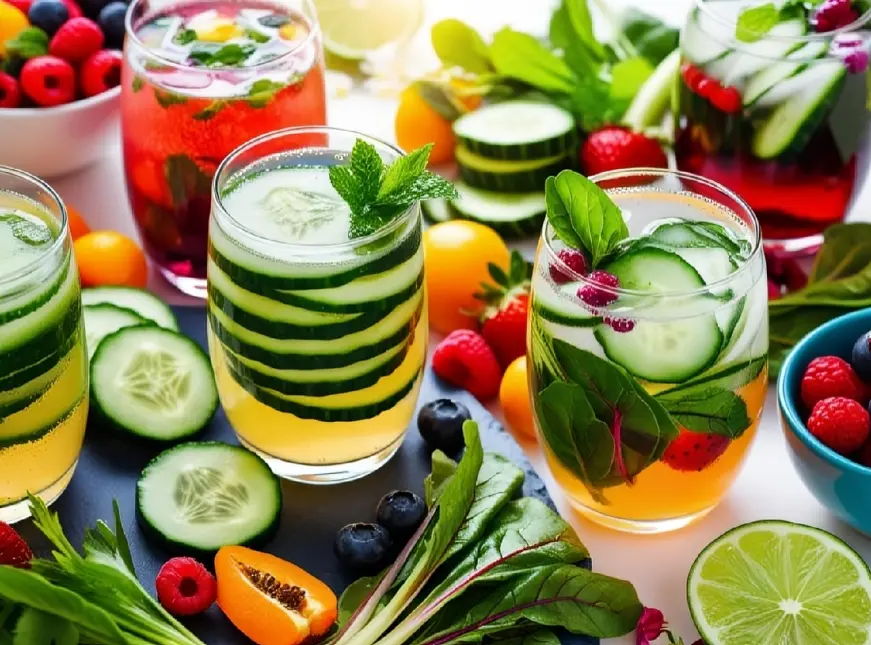
Japanese diet for weight management
The question of why Japanese people don’t get fat intrigues health enthusiasts worldwide. Renowned for their longevity and slim physiques, the Japanese maintain health through unique lifestyle habits. By emphasizing portion control, fresh food, and an active lifestyle, they have set an example worth emulating. Let’s explore the six key habits that help them stay fit and healthy.
A Balanced, Nutrient-Rich Homemade Diet
Japanese meals prioritize fresh and seasonal ingredients, contributing significantly to their health. Dishes often feature:
| Food Type | Common Examples | Health Benefits |
|---|---|---|
| Proteins | Fish, tofu, eggs | Rich in omega-3s; promotes heart health |
| Carbohydrates | Rice, sweet potatoes | Steady energy release, low glycemic impact |
| Vegetables | Seaweed, radish, spinach | Packed with vitamins, minerals, and fiber |
| Fermented Foods | Miso, pickles, natto | Gut health improvement and better digestion |
This diet limits processed foods, keeping calorie intake in check while delivering essential nutrients.
Smaller Portion Sizes
The habit of eating smaller portions explains why Japanese people don’t get fat. Meals are served in several small dishes, offering variety without excess calories. For example:
| Dish Type | Typical Food | Average Portion Size |
|---|---|---|
| Protein Dish | Grilled fish | 80–100 grams |
| Rice Bowl | Steamed white rice | ~150 grams |
| Vegetables | Seasonal pickles | ~50 grams |
This approach not only prevents overeating but ensures satisfaction with diverse flavors.
Focus on Fresh, Unprocessed Foods
In Japan, food preparation revolves around fresh, minimally processed ingredients. Foods are prepared at home using:
- Seasonal vegetables
- Locally sourced fish
- Limited oil and sugar
This reduces consumption of harmful trans fats and added preservatives, key factors in managing weight.
Mindful Eating Practices
Cultural norms in Japan encourage slow and mindful eating. Meals are treated as an experience, with family and friends often eating together. Eating slowly:
- Allows time to feel full, reducing overeating
- Improves digestion and nutrient absorption
- Enhances the enjoyment of food
These practices illustrate why Japanese people don’t get fat and instead develop healthier relationships with food.
An Active Lifestyle
Incorporating physical activity into daily life is second nature for the Japanese. Everyday routines often include:
| Activity | Frequency | Calories Burned (Approx.) |
|---|---|---|
| Walking | Daily commutes | ~150–200/hour |
| Cycling | Short-distance travel | ~300–500/hour |
| Gardening | Weekly hobby | ~200–300/hour |
This consistent activity boosts metabolism, helping maintain a healthy weight.
Healthy Beverage Choices
Green tea is a staple in Japan, offering multiple health benefits:
- Antioxidants: Combat oxidative stress
- Catechins: Boost metabolism and fat burning
- Low Calories: A guilt-free alternative to sugary beverages
Switching sugary drinks with green tea underscores why Japanese people don’t get fat and stay hydrated without added sugars.
Conclusion
The combination of balanced diets, portion control, fresh ingredients, mindful eating, an active lifestyle, and healthy beverages demonstrates why Japanese people don’t get fat. These habits offer valuable insights for anyone aiming to adopt healthier practices. By incorporating these lessons into daily life, weight management and improved health become achievable for all.
Explore related articles for a deeper understanding of slimming and weight loss techniques.
https://zadakhabar.com/15-homemade-drinks-to-aid-in-weight-loss/












